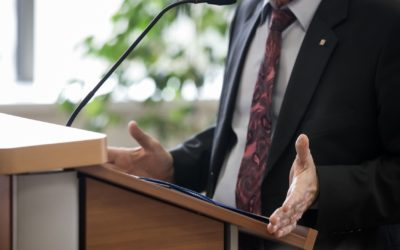2006 – #2 © Copyright 2006, all rights reserved worldwide. Gambling and the Law® is a registered trademark of Professor I Nelson Rose, Whittier Law School, Costa Mesa, CA
Silly laws create silly barriers, which call for silly solutions.
In 1996, the Florida State Legislature, undoubtedly acting with the best intentions, created a mess when it passed a law allowing pari-mutuel outlets to run commercial poker rooms. The tracks and jai alai frontons had lobbied for years. But to get enough votes, they had to accept restrictions which were – well, just plain silly. Commercial games had to be run under rules established for penny-ante social games.
How exactly can you run a cardroom when “the winnings of any player in a single round, hand, or game may not exceed $10 in value”? This was hardly poker: Players put in little more than a dollar and then the cards were dealt. No more bets were allowed.
Operators tried creative ways to get around the law. I was hired as an expert witness on behalf of the state in one case. I testified that, no, the game is not “poker” where players try to get close to 21 without going over.
Finally, in 2003, the legislators relented, a little. Now a “maximum bet may not exceed two dollars in value,” with an additional limit of no more than “three raises in any round of betting.”
This at least allowed poker to be played.
But then came the explosion of interest in no-limit Texas Hold ‘Em tournaments.
The regulator, the Division of Pari-Mutuel Wagering in the Department of Business and Professional Regulations, issued rules in May 2004 that limited wagering and entry fees in tournaments. Calder Race Course in Miami and Dania Jai-Alai immediately sued. They convinced a trial judge and the Florida First District Court of Appeal that the Division did not have the power to limit tournament entry fees.
Abiding by the courts’ decisions, the Division eliminated limits for tournaments in its rules. The result was easy to predict: pari-mutuel outlets began running lots of no-limit tournaments.
The Division found this more than a little disturbing. It issued an emergency rule, repealing all of its tournament regulations.
The law requires all sorts of safeguards before a regulation can take place. But, of course, sometimes there are emergencies, when government officials simply don’t have the time to hold hearings and ask for public comment. Was this one of those situations? The Division thought so:
“There exists an immediate danger to the public health, safety, and welfare due to the conduct of statutorily unauthorized poker tournaments.”
The emergency rule made it clear that all poker games, whether in tournaments or not, are limited to $2 maximum bets and three raises per round.
So, is this the end of no-limit Hold ‘Em tournaments in Florida?
Derby Lane in St. Petersburg and Dania Jai-Alai have come up with creative solutions. The $2 limit does not apply to entry fees, they say. Contestants are charged about $45 to enter, but are then given chips worth far less than a penny each. Even when a player goes all-in, the bet is technically never more than $2. The tournament winner ends up with a pile of chips worth a few dollars, and the bulk of the entry fees, which can total more than $1,000.
So far, the Division is allowing these tournaments.
Of course, even the World Series of Poker could be played under this interpretation of the law.
I doubt a lawmaker who voted for $2 limits would be happy knowing that prizes of $1,000 are being won or lost on single hands.
But when you write silly laws, such as imposing ridiculously low limits on commercial poker games, you should not expect everyone will play along.
END
© Copyright 2006. Professor I Nelson Rose will be teaching International Gaming Law as part of Whittier Law School’s Summer Abroad Program in France in July 2006. For more information, contact Prof. Rose through his website, www.GamblingAndTheLaw.com.





0 Comments